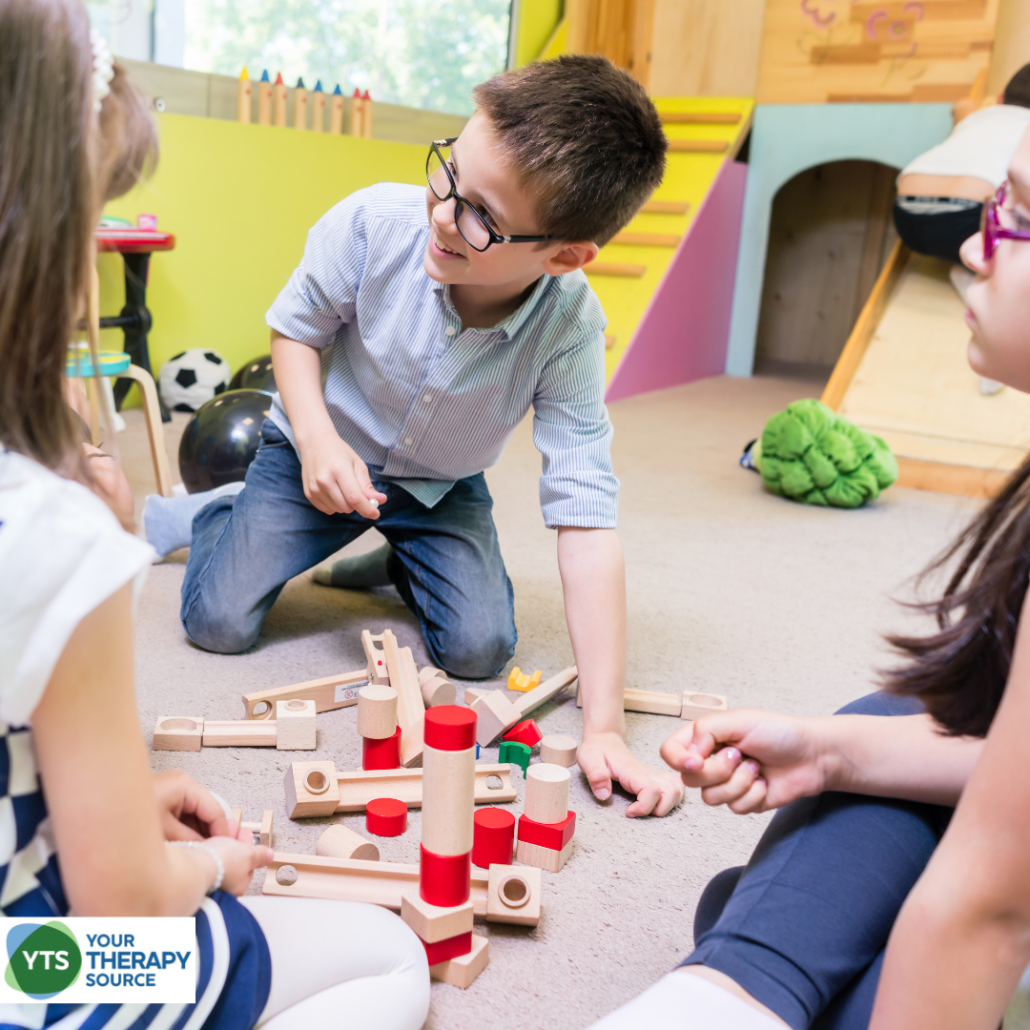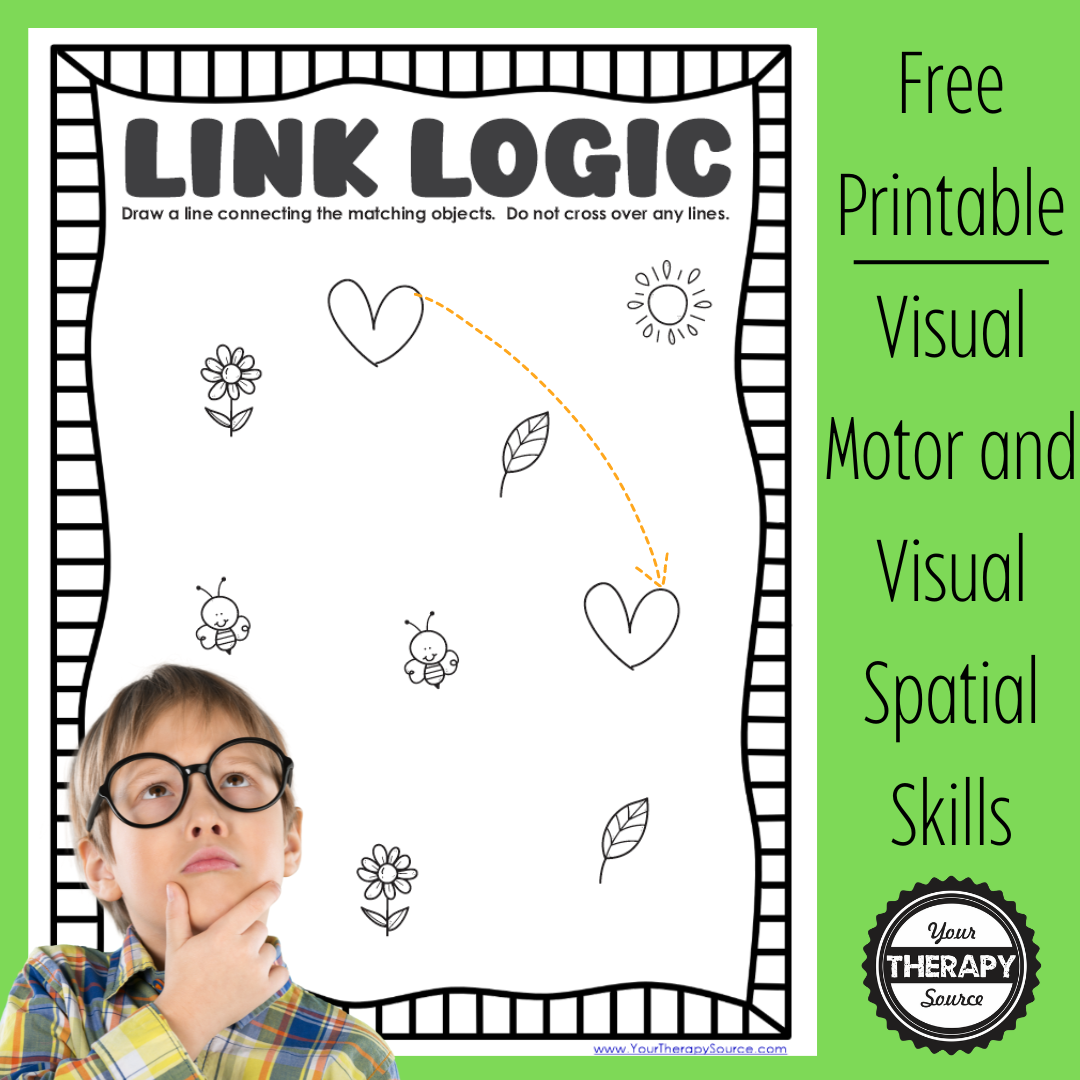Cooperative Play
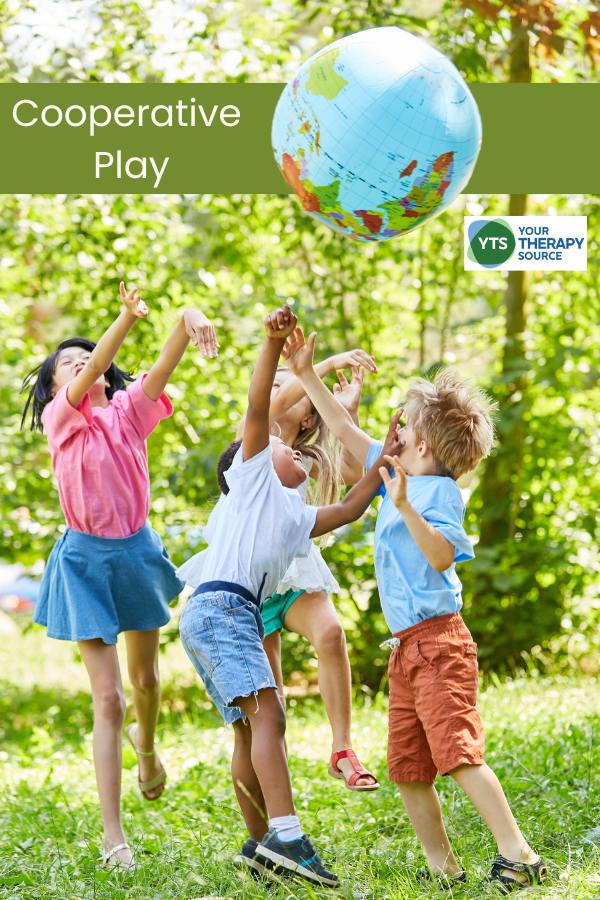
Cooperative play is an engaging form of social interaction where children work together towards a shared goal. This article outlines what cooperative play involves, discusses different games that incorporate cooperative principles, provides examples suitable for young children, and highlights the importance of cooperative play for preschoolers, demonstrating how it builds essential life skills.
Understanding Cooperative Play
Cooperative play represents the final stage of play development, following the stages defined by researcher Mildred Parten, which include:
- Unoccupied Play: Where play is not yet organized.
- Solitary Play: Children play alone.
- Onlooker Play: Watching others play.
- Parallel Play: Playing alongside others without interaction.
- Associative Play: Some interaction with sharing or conversation.
- Cooperative Play: Fully interactive play with a common goal.
In cooperative play, children engage in structured activities, such as games and sports, where roles and rules are defined.
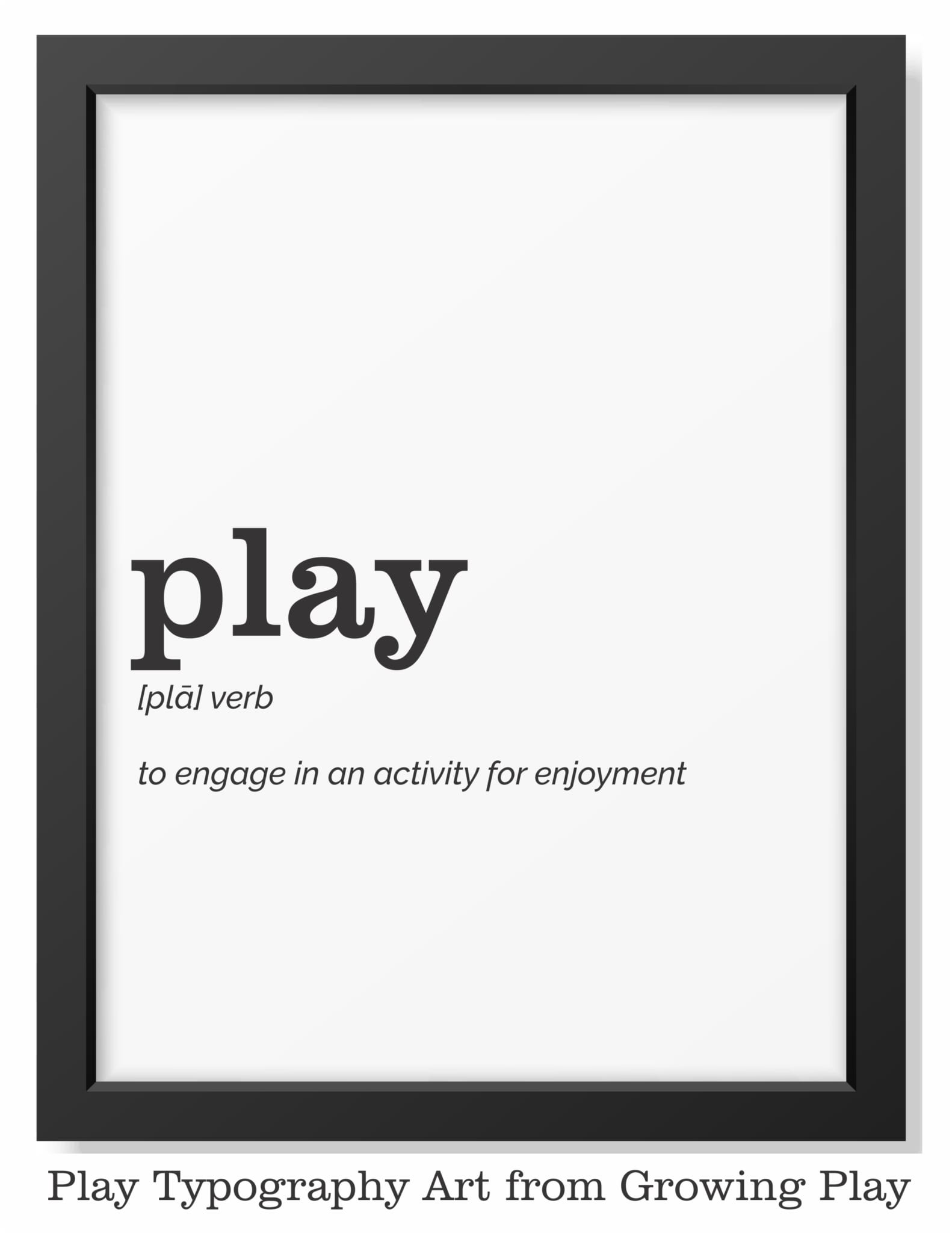
Play Typography Art
Examples of Cooperative Play Games
Traditional Board Games for Younger Children
Board games are excellent tools for teaching cooperation among young children. Here are a few traditional games designed for younger players that require teamwork:
- Cooperative Board Games: Games like “Hoot Owl Hoot”, “Race to the Treasure” or “Outfoxed” where players work as a team to achieve the game objectives.
General Cooperative Twist for Any Board Game
Here are a few universal cooperative rules you could use with any board game:
- Joint Victory Condition: Redefine winning from being the first to finish to achieving a group goal. For example, set a rule that players must help each other reach the end, and the game is only won when all players finish within a set number of turns.
- Role Assignments: Give each player a special role with unique abilities that can be used to help others during the game. For example, one player could have the power to protect others from one chute fall per game, another could move an extra space once per round to aid slower players, etc.
- Group Challenges: Introduce new, random challenges that players must solve together before moving on. These could be simple puzzles or questions about the game characters or colors.
By implementing these cooperative twists, traditional games can become fresh and exciting tools for teaching teamwork and collective problem solving, making game night both fun and educational for young children.
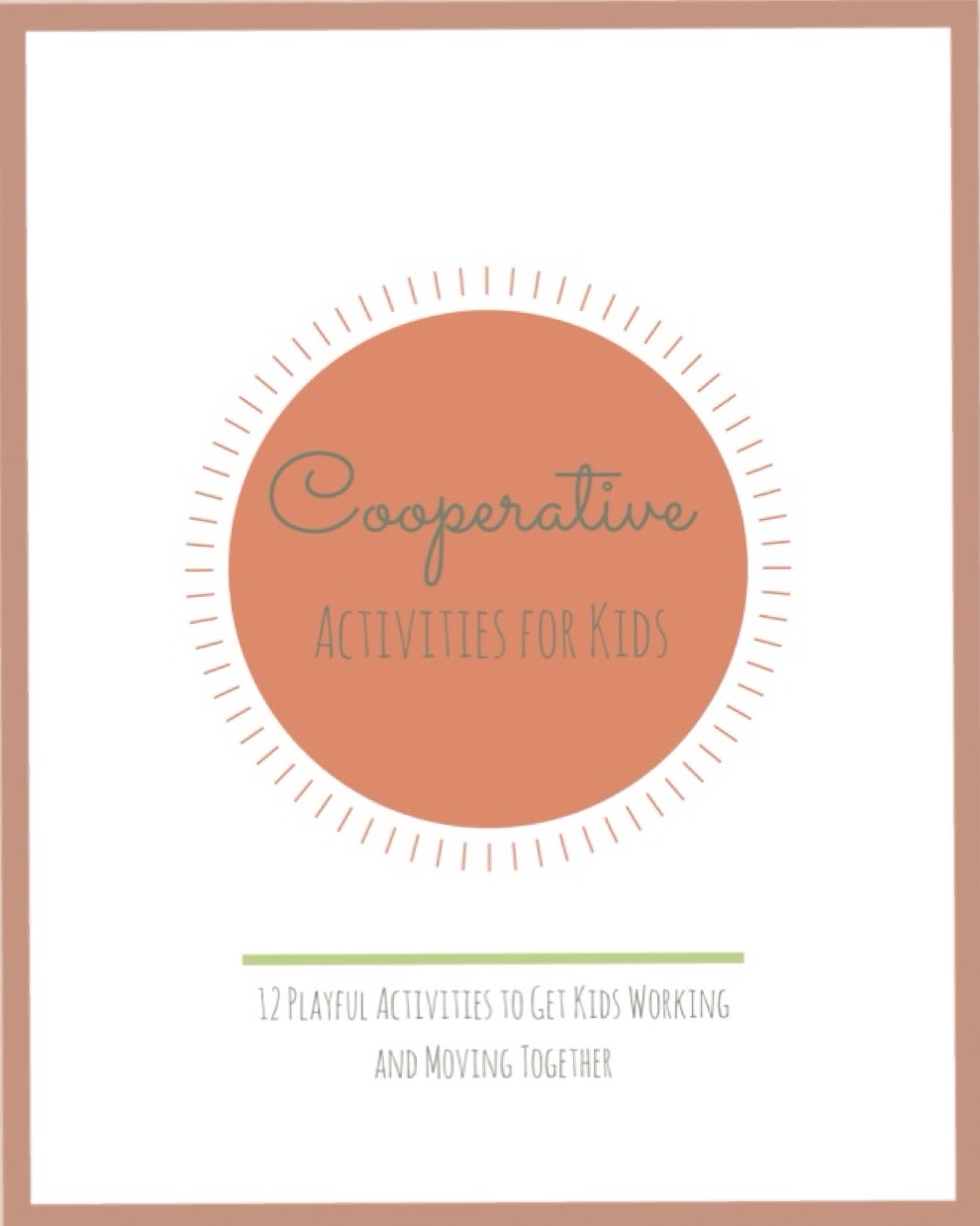
Cooperative Activities for Kids: 12 Playful Activities to Get Kids Working and Moving Together
Team Sports and Group Activities
These activities not only require physical activity but also demand that children work together to strategize and make group decisions:
- Relay Races: Teams of children work together to complete the race.
- Obstacle Courses: Coordination and teamwork are necessary to navigate the course.
- Soccer and Basketball: Team members pass and strategize together to score points.
Role-Playing and Dramatic Play
Dramatic play allows children to explore different roles and scenarios:
- Playing “Family” or “Hospital”: Children assign roles and act out scenes, developing empathy and role awareness.
- Structured Role-Play Scenarios: Designed by educators to teach specific cooperation skills.
Cooperative Play for Preschoolers
Preschool is an important time for fostering cooperative skills through play, structured in ways such as:
- Guided Free Play: Educators set up environments that encourage children to interact and work together.
- Structured Group Activities: Tasks that require children to collaborate to achieve a goal. Using a parachute together is an excellent example of cooperative play with preschool students.
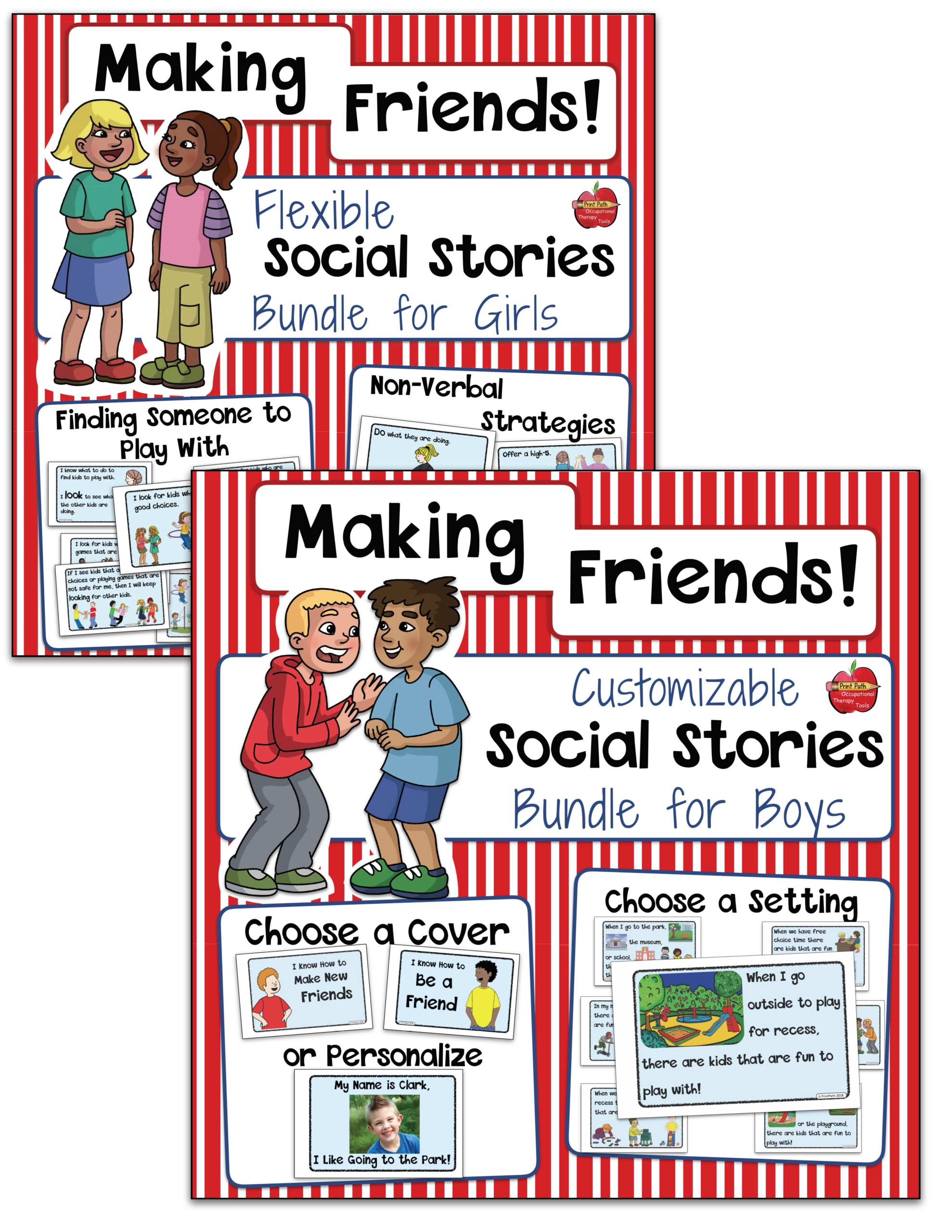
Making Friends Social Stories for Girls AND/OR Boys – Flexible and Editable
Benefits of Cooperative Play
Participating in cooperative play offers numerous developmental benefits:
- Social Skills: Learning to share, take turns, and work as part of a team.
- Emotional Development: Understanding and managing personal feelings and empathizing with others.
- Cognitive Growth: Developing problem-solving abilities and decision-making skills.
- Physical Development: Enhancing motor skills through active play.
Real-Life Examples of Cooperative Play
In Educational Settings
Educators can facilitate cooperative play with minimal equipment through these ten simple activities:
- Group Story Building: Each child adds a sentence to build a story together.
- Classroom Gardening Project: Children collaborate to plant and care for a small garden.
- Group Mural Painting: Using large sheets of paper and some colors, children work together to create a mural.
- Circle Singing Games: Games like “Duck, Duck, Goose” or “Farmer in the Dell” involve all children and encourage participation.
- Team-Based Puzzles: Large puzzles that require several children to work together to complete.
- ‘Simon Says’ with a Twist: One child leads as “Simon” giving instructions that require group coordination to follow.
- Class Cleanup Races: Teams compete to tidy up their areas the fastest, promoting teamwork and responsibility.
- Pass the Ball: Children sit in a circle and must pass a ball using only their feet, promoting cooperation and physical coordination.
- Weather Station: Children collaborate to create a classroom weather station, sharing tasks like measuring rainfall or temperature.
- Collaborative Science Experiments: Simple experiments, like building a volcano or creating a water cycle model, where each child has a role.
At Home
Families can engage in these cooperative play activities that are fun and require minimal equipment:
- Family Cook-Off: Each family member contributes to making part of a meal.
- Home Treasure Hunt: Create a treasure hunt with clues that require the family to work together to solve.
- Garden Bird Watch: Set up a bird feeder and have children work together to spot and identify different birds.
- Family Story Time: Each family member tells a part of a story, building on the previous part.
- Yoga Together: Practice simple yoga poses together, helping each other balance and achieve the poses.
- DIY Obstacle Course: Use cushions, chairs, and blankets to set up an indoor obstacle course that everyone helps to design and then complete.
- Joint Art Project: Large canvas or paper where everyone adds their artistic touch to create a family masterpiece.
- Board Game Design: Work together to design and create a simple board game, then play it.
- Backyard Botany: Work together to identify plants and insects in the backyard, perhaps even creating a small vegetable patch.
- Family Performance Night: Put on a play or a talent show where each family member has a role, whether on stage or behind the scenes.
These activities not only foster cooperation and teamwork but also ensure that children develop communication, social, and problem-solving skills in a fun and engaging environment.
Further Reading and Resources
Explore these resources for more insights into cooperative play and its benefits:
- Benefits of Play
- Quick Games to Play in the Classroom
- Inspirational Play Quotes
- Benefits of Risky Play
- Benefits of Sensory Play
- Tips to Encourage Children to Cooperate
The Lasting Impact of Cooperative Play on Child Development
Cooperative play is not just an enjoyable activity—it’s a critical component of early childhood development that provides a foundation for a host of essential skills. By engaging in cooperative games and activities, children gain experiences that shape their interpersonal and intrapersonal abilities for years to come. Here are some key takeaways to consider:
- Enhances Communication Skills: Cooperative play teaches children the value of effective communication as they express their ideas, listen to others, and negotiate roles.
- Develops Critical Social Skills: Through activities like group games and collaborative play, children learn important social behaviors such as sharing, empathy, and conflict resolution.
- Promotes Cognitive and Emotional Growth: Participating in cooperative games helps enhance cognitive skills like problem solving and critical thinking while also developing emotional skills by considering the feelings of others.
- Builds a Foundation for Academic Skills: Play-based learning in cooperative settings not only supports social development but also underpins academic success in the early years and beyond.
- Prepares for Teamwork in Diverse Settings: The ability to work as a team member and adapt to different roles is crucial, and cooperative play prepares children to navigate these challenges in both school and later life.
- Supports Healthy Development Overall: Engaging in different types of play at varying paces helps ensure balanced growth across all areas of development—social, emotional, physical, and intellectual.
Cooperative play is a powerful tool that early childhood educators and parents can use to nurture a range of competencies that are vital for children’s holistic development. It offers a structured yet flexible environment where children can explore different aspects of interaction and learn to appreciate the value of teamwork and community. Emphasizing cooperative play in child care centers and at home is one of the best ways to equip children with the valuable skills they need for a successful and fulfilling life.
